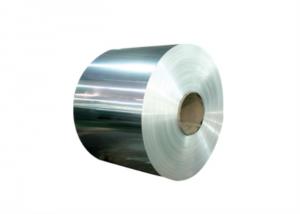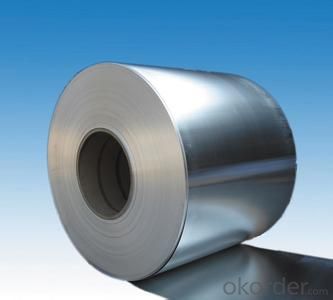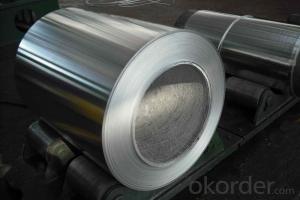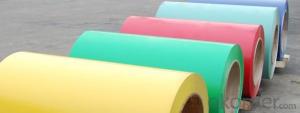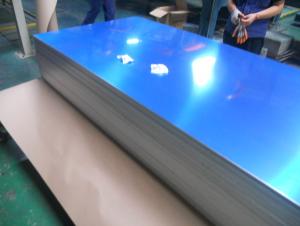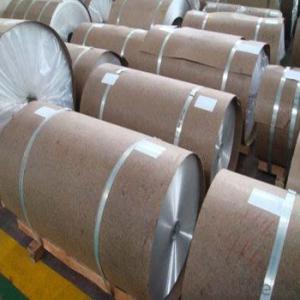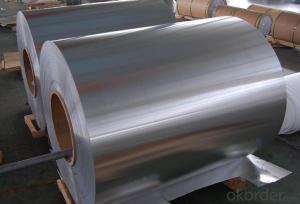Black Aluminum Coils for Direct Rolling in Vessel Building
- Loading Port:
- Shanghai
- Payment Terms:
- TT OR LC
- Min Order Qty:
- 80 m.t.
- Supply Capability:
- 50000 m.t./month
OKorder Service Pledge
OKorder Financial Service
You Might Also Like
Specification
1.Structure of Direct Rolling Aluminium Coils for Vessel Building
Direct Rolling Aluminium Coils for Vessel Building is one semi-finished aluminium material. This strip can be rolled down to aluminium coil,sheet,circle ect. The alloy AA1050 is widly used in building, industry ect. Its weight is much lower than steel. So many customers choosed aluminium material instead of steel.
2. Main features of Direct Rolling Aluminium Coils for Vessel Building
a.Competitive price---We have our own mills and can produce mill finished aluminium coils, so we can control the production cost better.
b.Professional after-sale service---We have more than 15 years exportation experience and you need not worry about the exporation problems.
c.Fast delivery time---We can control the delivery time within 35 days.
3. Image
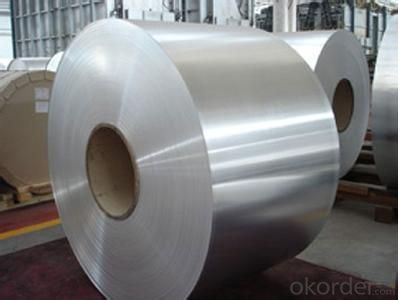
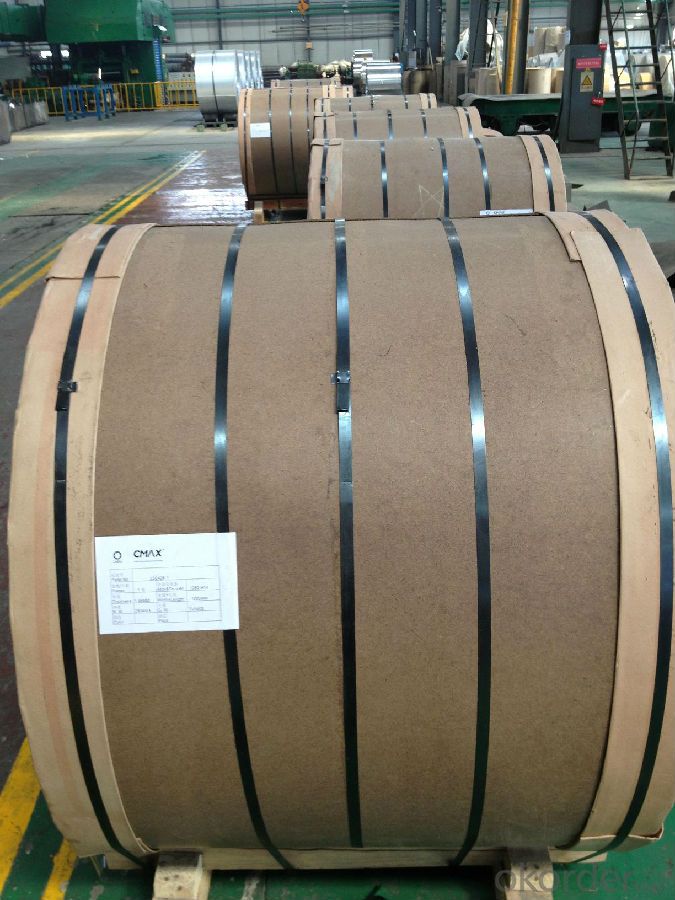
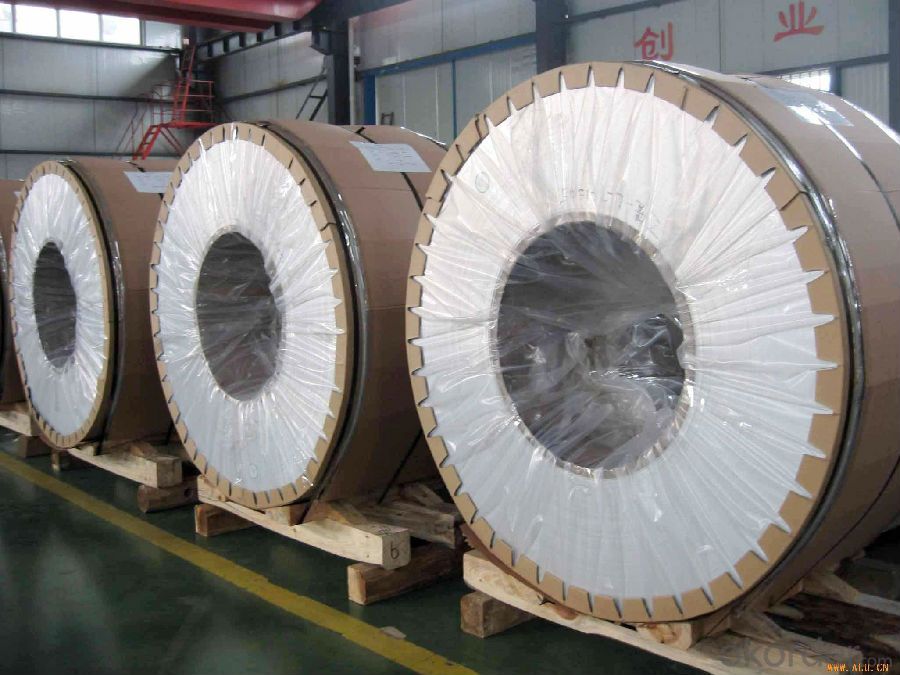
4. Product Specification
| ALLOY | TEMPER | THICKNESS | WIDTH | USAGE |
| AA5052 | H18 | 3MM-8MM | 1500MM-2200MM | VESSEL BUILDING |
5.FAQ:
What is the quality standard?
---Usually our standard is GB3880-2006
What is the largest width?
---It is 2300mm
What is the MOQ?
---Usually we can accept 80 tons.
- Q: Can aluminum coils be customized?
- Yes, aluminum coils can be customized according to specific requirements. Aluminum coils are highly versatile and can be customized in terms of thickness, width, length, alloy composition, surface finish, and other specifications. This allows for a wide range of applications in various industries such as construction, automotive, aerospace, electronics, and packaging. Customization of aluminum coils can be done through processes like slitting, cutting-to-length, embossing, painting, and coating. This flexibility in customization enables manufacturers to meet the unique needs of their customers and ensures that the aluminum coils are optimized for their intended use.
- Q: What are the potential applications of coil-painted aluminum coils?
- Coil-painted aluminum coils possess a vast array of potential uses across multiple industries. Before being molded and transformed into various products, aluminum coils are coated with paint through the coil-painting process. This procedure improves the resilience and visual attractiveness of the aluminum, making it suitable for diverse applications. Within the construction sector, coil-painted aluminum coils can be employed for roofing, siding, and façade systems. The paint provides an additional layer of defense against corrosion and weathering, guaranteeing the durability of the building materials. Moreover, the wide range of colors and finishes available in coil-painted aluminum allows for customization and design flexibility in architectural projects. Another field where coil-painted aluminum coils find utility is the automotive industry. Car body panels, trim, and other exterior components can be manufactured using coil-painted aluminum. The paint ensures a smooth and uniform finish, enhancing the vehicle's aesthetics. Furthermore, the lightweight nature of aluminum makes it an ideal material for enhancing fuel efficiency, and the coil-painting process further strengthens its resistance to scratches and UV-induced fading. Coil-painted aluminum coils are also utilized in the production of appliances, such as refrigerators, ovens, and air conditioning units. The painted surface not only enhances the appearance of the appliances but also safeguards them against corrosion and wear and tear. The malleability of coil-painted aluminum allows for the efficient production of diverse appliance components in different shapes and sizes. Additionally, coil-painted aluminum is commonly employed in the signage industry. The vibrant colors and durable finish achieved through the coil-painting process make it an exceptional choice for both indoor and outdoor signage. Aluminum coils can be easily cut, shaped, and molded into various sign types, including channel letters, lightboxes, and dimensional signs. In conclusion, coil-painted aluminum coils have a broad range of potential applications. Whether in construction, automotive, appliances, or signage, the enhanced durability, aesthetic appeal, and customization options of coil-painted aluminum make it a versatile material for manufacturing purposes.
- Q: What are the common transportation methods for aluminum coils?
- The common transportation methods for aluminum coils include trucking, rail, and shipping. Trucking is often used for short distances or when there is a need for prompt delivery. Aluminum coils are typically loaded onto flatbed trailers or specialized coil trailers equipped with cradles or coil racks to secure them in place during transit. This method offers flexibility and allows for easy access to various locations. Rail transportation is commonly used for long-distance shipments. Aluminum coils are loaded onto railcars, which are specifically designed to accommodate the weight and dimensions of the coils. Rail transportation is advantageous for its cost-effectiveness and ability to transport large quantities of coils in a single shipment. Shipping by sea is another common method for transporting aluminum coils, especially for international shipments. Coils are typically loaded onto cargo ships in specialized containers or directly onto the ship's deck. Shipping offers the advantage of carrying large volumes of coils over long distances, and it is often the preferred method for global distribution due to its efficiency and cost-effectiveness. Overall, the transportation methods for aluminum coils depend on factors such as distance, urgency, quantity, and destination. Companies must consider these factors to determine the most suitable transportation method for their specific needs.
- Q: How are aluminum coils used in the production of industrial machinery?
- Aluminum coils are widely used in the production of industrial machinery due to their unique properties and benefits. These coils are typically made from high-quality aluminum alloy, which offers excellent strength, durability, and corrosion resistance. One common application of aluminum coils in industrial machinery is in the manufacturing of heat exchangers. Heat exchangers play a crucial role in various industrial processes, including refrigeration, HVAC systems, and power generation. Aluminum coils are ideal for heat exchangers due to their high thermal conductivity, allowing for efficient heat transfer. Furthermore, aluminum coils are also utilized in the production of industrial equipment such as air compressors, pumps, and turbines. The lightweight nature of aluminum makes it an excellent choice for these applications, as it helps reduce the overall weight of the machinery. This, in turn, leads to improved energy efficiency and lower operational costs. Another significant advantage of aluminum coils is their malleability and formability. Aluminum is highly ductile, meaning it can be easily shaped and formed into various complex geometries required for the machinery's components. This allows manufacturers to create intricate parts and structures, ensuring precise fit and optimum performance. Additionally, aluminum coils offer exceptional resistance to corrosion, making them suitable for machinery used in harsh environments or exposed to corrosive materials. This corrosion resistance helps extend the lifespan of the machinery and reduces the need for frequent maintenance or replacement of parts. In summary, aluminum coils are essential components in the production of industrial machinery. They provide strength, durability, lightweight, and corrosion resistance, making them ideal for various applications such as heat exchangers, air compressors, pumps, and turbines. Their malleability also allows for intricate part fabrication, ensuring precise fit and optimal performance.
- Q: Is it possible to determine the spring constant of an aluminum coil using a spring compressor?
- <p>Yes, you can use a spring compressor to measure the spring constant of an aluminum coil. The spring constant (k) can be calculated using Hooke's Law, which states that the force exerted by a spring is proportional to its displacement (F = kx). By applying a known force to the spring and measuring the resulting displacement, you can calculate the spring constant. A spring compressor can apply a controlled force, and a displacement gauge can measure the compression, allowing you to determine the spring constant accurately.</p>
- Q: Can aluminum coils be used in vacuum applications?
- Yes, aluminum coils can be used in vacuum applications. Aluminum is a commonly used material in vacuum systems due to its excellent properties such as low outgassing, high thermal conductivity, and good corrosion resistance. These properties make aluminum coils suitable for various vacuum applications, including but not limited to, vacuum chambers, vacuum pumps, cryogenic systems, and particle accelerators. However, it is important to note that aluminum can be reactive with certain gases or chemicals, so it is essential to consider the specific requirements and compatibility of the vacuum application before using aluminum coils.
- Q: What are the common surface treatments for aluminum coils in the construction industry?
- Aluminum coils are widely used in the construction industry due to their lightweight, durability, and corrosion resistance. To improve their performance and appearance, various surface treatments are applied. In the construction industry, there are several common surface treatments for aluminum coils: 1. Anodizing is a widely used method that involves creating an oxide layer on the aluminum surface. This process enhances corrosion resistance, improves weather resistance, and provides coloring options. 2. Powder coating is a popular technique where a dry powder is applied electrostatically and then cured under heat. This results in a durable, smooth, and attractive finish that is resistant to chipping, fading, and scratching. 3. PVDF coating is a high-performance option that offers excellent weather resistance and color retention. It is commonly used in architectural applications where long-term durability and aesthetic appeal are desired. 4. Paint coating, using liquid paint, provides a wide range of color options and finishes. These coatings offer good corrosion resistance and can be tailored to specific design requirements. 5. Brushed finish is achieved by brushing the aluminum surface, creating a textured appearance. This process can be done mechanically or chemically, enhancing the aesthetic appeal of the coils. 6. Laminating involves applying a layer of protective film or laminate to the aluminum coil. This safeguards the coil from scratches, stains, and other damage during handling, transportation, and installation. These surface treatments not only enhance the durability and performance of aluminum coils but also offer customization options. Architects and designers can achieve their desired aesthetics while ensuring long-lasting performance in construction applications.
- Q: What are the various applications and purposes of aluminum coil in different industries?
- <p>Aluminum coil is widely used in numerous applications due to its lightweight, corrosion resistance, and high strength. It is commonly used in construction for roofing and siding, in the automotive industry for body panels and heat exchangers, and in the packaging industry for food and beverage cans. Aluminum coil is also utilized in electrical applications such as transformers and wiring, and in the manufacturing of everyday items like foil and cookware. Its versatility makes it a popular material in various industries.</p>
- Q: Are aluminum coils compatible with other materials?
- Indeed, other materials can be used in tandem with aluminum coils. Aluminum, being a versatile and extensively utilized substance, readily blends with various materials for different purposes. Take, for instance, the utilization of aluminum coils alongside copper tubing in air conditioning and refrigeration systems to amplify heat transfer efficiency. Furthermore, aluminum coils can be coated or layered with polymers or paints to furnish supplementary safeguard against corrosion, enhance visual appeal, or elevate specific performance attributes. Consequently, aluminum coils exhibit compatibility with a multitude of materials, rendering them apt for an array of applications within industries like construction, automotive, aerospace, and beyond.
- Q: Roll presented above 1 complete circles are brineling put on work roll after the new rolling, less than 12 volumes in the aluminum surface will be presented in the corresponding position of a straight roller, a roller indentation in the above, check the work roll above a pit. Replace the upper support roll for only a few days. Want to know what's going on?Should not be bearing problems, because the bearings have been used for almost 4 years, it should not be bearing problems, and now they are suspected of bending cylinder seal problems, oil seepage phenomenon.
- For a few days and roll crushed?Whether or not the work roll tilt and the positive and negative camber of the roll are controlled, the work roll is running abnormally, and the backup roller is rubbed.
Send your message to us
Black Aluminum Coils for Direct Rolling in Vessel Building
- Loading Port:
- Shanghai
- Payment Terms:
- TT OR LC
- Min Order Qty:
- 80 m.t.
- Supply Capability:
- 50000 m.t./month
OKorder Service Pledge
OKorder Financial Service
Similar products
Hot products
Hot Searches
Related keywords
